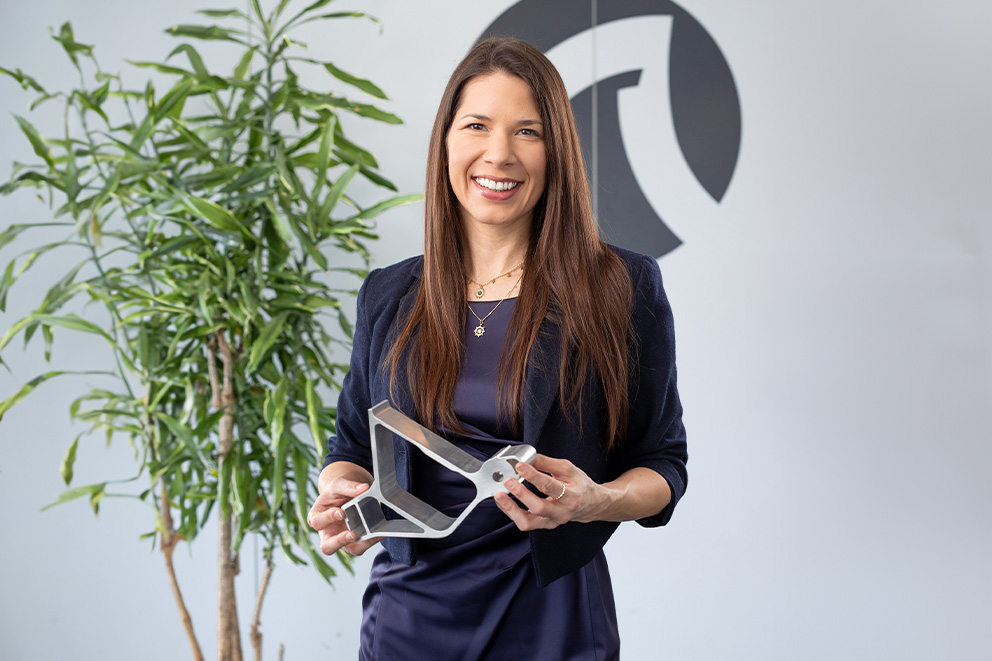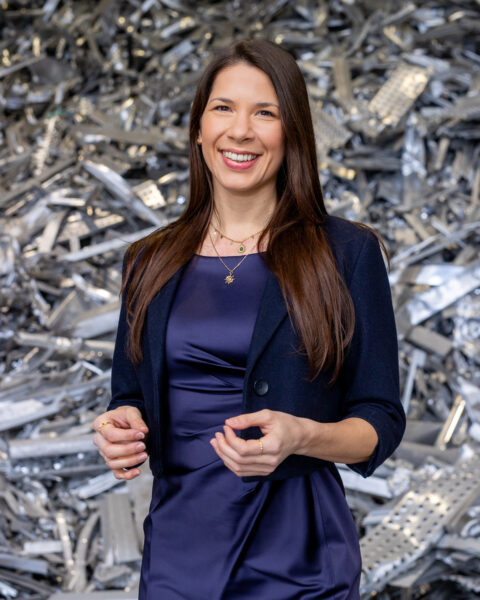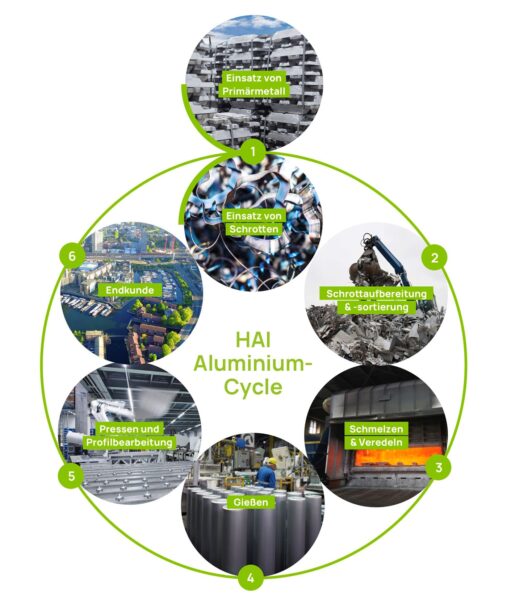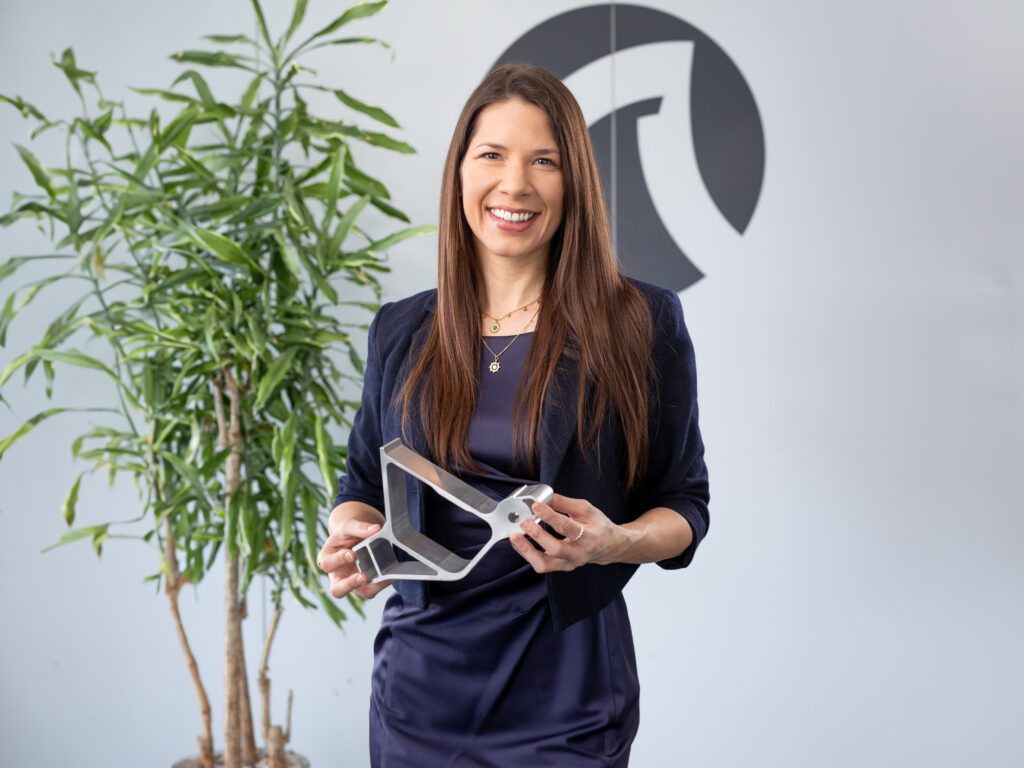
Interview with Marlene Johler, Head of Sustainability & Public Affairs HAI Group
Marlene Johler has been Head of Sustainability & Public Affairs at HAI for more than 15 months now. We spoke to her about the biggest lessons learned in the first 15 months and the importance of the corporate carbon footprint on the road to decarbonization:

What were the biggest things you learned in your first 15 months at HAI?
Marlene Johler: The biggest learning was how much knowledge about sustainability is missing. We read about sustainability in the news every day, but only a few people really know what it’s all about. That means you have to have a lot of conversations to get everyone on board. That’s why we at HAI have also started to offer training for all employees to bring more understanding of the topic to the entire organization. The aim is to get everyone on board. Sustainability is a very exciting topic, and you have to get that across.
The second major learning is how cross-functional sustainability is. Sustainability is often associated “only” with the environment, but it is also about social and governance factors. Sustainability affects all areas of the organization and this means that you need employees from all areas of the company to be able to implement sustainability.
How do you rate the results achieved so far?
Marlene Johler: We are very proud of what we have achieved so far. Since 2019, we have been able to reduce our total CO2 emissions by more than 20 percent – that’s huge. This is possible because we take a holistic view of sustainability and take measures along the entire value chain, starting with the procurement of low-carbon primary aluminum, a high proportion of scrap in the foundry, investments in the most modern and energy-efficient systems and the purchase of green electricity and our own photovoltaic systems.

Has HAI set a clearly defined target for its carbon footprint?
Marlene Johler: Yes, HAI has set itself the goal of becoming climate-neutral by 2050. We have made great progress in this area in recent years. Now we need to implement our decarbonization roadmap . This is no trivial matter, as we have already harvested all the low-hanging fruit and now it’s time to get down to business.
We are also heavily dependent on technological progress when it comes to decarbonization. A large part of our carbon footprint comes from the aluminum we buy. In order for us to be able to purchase primary aluminum with an even lower carbon footprint, for example, the aluminum industry needs a functioning inert anode technology.
What questions do customers most frequently ask you about sustainability and the carbon footprint?
Marlene Johler: Last year, the main topics were the carbon footprint of our products and the proportion of recycled aluminum. HAI is a major aluminum recycler, but we are still critical of a mandatory recycling rate because the global demand for aluminum is constantly increasing, our products are durable and therefore not available as scrap for between 15 and up to 40 years – which is excellent in itself – and the amount of scrap currently available worldwide only covers around 35% of the global demand for aluminum.
In addition, the scrap cycles work very well because aluminum can be recycled endlessly without any loss of quality, meaning that 75% of the aluminum ever produced is still in the cycle.
Due to the geopolitically uncertain situation, there are currently many questions about supply chain security. We source the majority of our raw materials from the EU or EEA and can score points here with our supply chain.
How important is the constant exchange with customers of the HAI Group for you?
Marlene Johler: I really enjoy talking to our customers frequently, as this gives me a good feeling for what is in demand on the market and what issues are important to our customers. This enables us to better understand their needs and expectations and develop sustainable solutions together.
HAI offers certified carbon footprint data with its sustainable SustainAl alloys. What advantages do certified aluminum products offer customers from different industries?
Marlene Johler: Ultimately, it’s all about transparency. Our SustainAl alloys have a particularly low carbon footprint and a guaranteed recycled content. When our customers opt for SustainAl, they receive a corresponding certificate. This helps them to achieve their own sustainability goals and reduce their carbon footprint. This is particularly important in sectors such as the automotive and construction industries, where sustainability is becoming an increasingly important factor.

In addition to the benefits for climate protection, the HAI Group also expects economic benefits from its commitment to decarbonization?
Marlene Johler: Sustainability is an important lever for HAI to be economically successful in the long term and to act responsibly as a company. Many sustainability projects have an ROI – especially when you think about improving resource efficiency, investing in our own photovoltaic systems, heat recovery, etc. And that’s a good thing, because sustainability has to be a business case. In addition, we can differentiate ourselves from the competition with low-carbon aluminum products, open up new business areas and secure jobs in the region in the long term.
Would you like to contact us?
Marlene Johler: marlene.johler@hai-aluminium.com
Media contact: elfriede.dicker@hai-aluminium.com
The HAI Group
Hammerer Aluminum Industries employs 1,900 people. Founded in 2007, the company has its headquarters in Ranshofen, Upper Austria, and eight other locations in Germany, Romania, Poland and South Korea. HAI can look back on a special success story. It combines the dynamism and innovative spirit of a young company with the experience of a traditional business. In 2024, HAI achieved a turnover of 823 million euros in the three production areas of casting (foundry), extrusion (extrusion) and processing (mechanical processing). The HAI Group’s products can be found in the construction sector as well as in automotive and transportation technology, electrical engineering and mechanical and plant engineering.
Photo credits: HAI